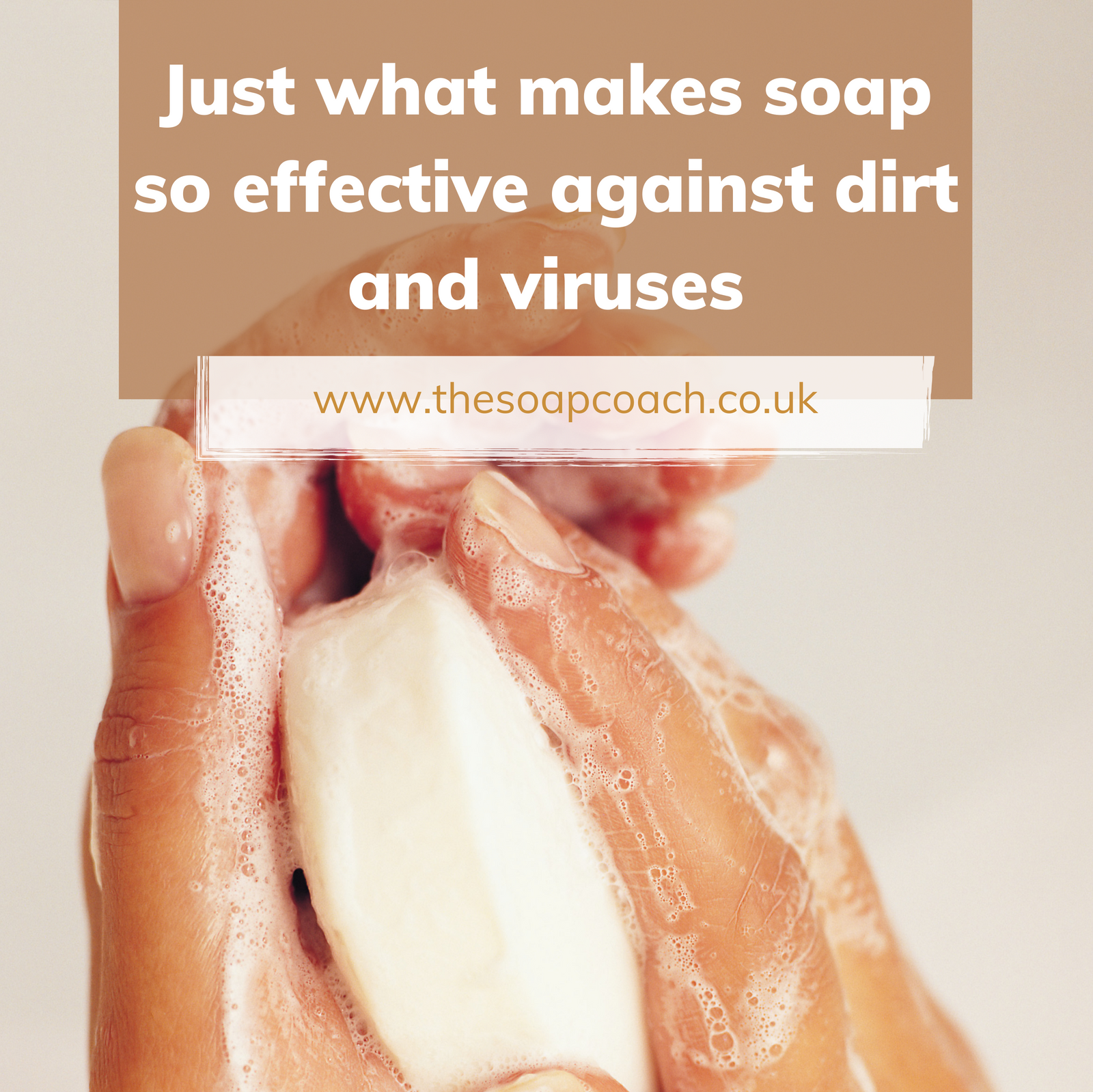Just what makes soap so effective against dirt and viruses - the science made simple for all ages.

Soap - it has been hailed in recent weeks as the one thing we need to be using more frequently, and for longer, to wash our hands in our fight against Coronavirus. I wasn't going to write about this if I am honest. Leave it for everyone else I thought. Let's focus on the positives and the fun and creativity of soap making instead.
But then I realised, we are all being told to use soap but no-one really tells us why. What is the science behind the advice? How does soap work? Does it kill the virus?
Now I do appreciate not everyone may have the same curiosity or be in the slightest bit of interested in science. And that is absolutely fine, but if you are currently home schooling a child, as I am, let's turn this in to a bit of a science lesson for them while we are at it.
Firstly how is soap made? Well it is created by combining fatty acids (in most cases vegetable oils) with an alkaline solution. The alkaline solution is made with Sodium Hydroxide (NaOH) and water). A chemical reaction called saponification occurs between the two and the mixture thickens and heats as it goes through this process. Once complete you have soap. It really is that simple although there is some maths involved to work out the correct balance of ingredients.
How does soap work? Soap molecules are long and thin and have a water loving end (hydrophillic) and a grease and oil loving end (hydrophobic). Soap is also a surfactant which means it reduces the surface tension of water and in effect makes it more slippery.
So, to put this in to context, when you wash your hands, the hydrophobic end of the soap molecule grabs the grease and oils and the dirt that is trapped within whilst the hydrophillic end binds with the water which then pulls the hydrophobic end complete with dirt and oils away and washes them down the sink. You will find that this process is more effective with hot water as it softens the grease making it easier to remove. Phew. Have you got that?

Now what about viruses. Just why are we consistently being told that soap is one of the best defences against infection whilst going about our daily lives? Whilst I had a good knowledge of how soap works as a cleanser I did not know why it is so effective against viruses however, the budding scientist in me is always happy to research questions like these and this is what I have discovered.
The majority of viruses are made up of 3 key components, ribonucleic acid (RNA), proteins and lipids. These are loosely held together by the lipid which is a fatty layer. When the virus is transferred to our hands it 'sticks' to our skin due to the proteins and fatty acids on our skin. Soap works two fold in that it can dissolve the fatty layer that holds the key components of the virus together and quite literally cause it to fall apart before washing it away but also the hydrophobic end of the soap molecule grasps the grease, oil or fatty acids on our skin that the virus is attached to and washes it down the sink, just as it does when we are washing anything else from our hands. So whilst, I am of course, not a scientist, this does all make perfect sense.
Now I fully accept that whilst your teenager will get a good grasp on this topic very quickly, your 4 year old will not. But when we tell them that hand washing is important, maybe just explain why the soap bit is needed as well as a quick rinse. That the soap has 2 wiggly ends - 1 end to grab the dirt and hold it tight and the other end to grab the water and then pull the dirty end down the sink.
I hope that has helped and in the meantime keep washing those hands and stay safe.
I would like to credit National Geographic and an article in The Guardian written by Pall Thordarson, a professor of chemistry at the University of New South Wales, Sydney for some of the information I have used in this blog specifically where I have talked about viruses.
Leave a comment